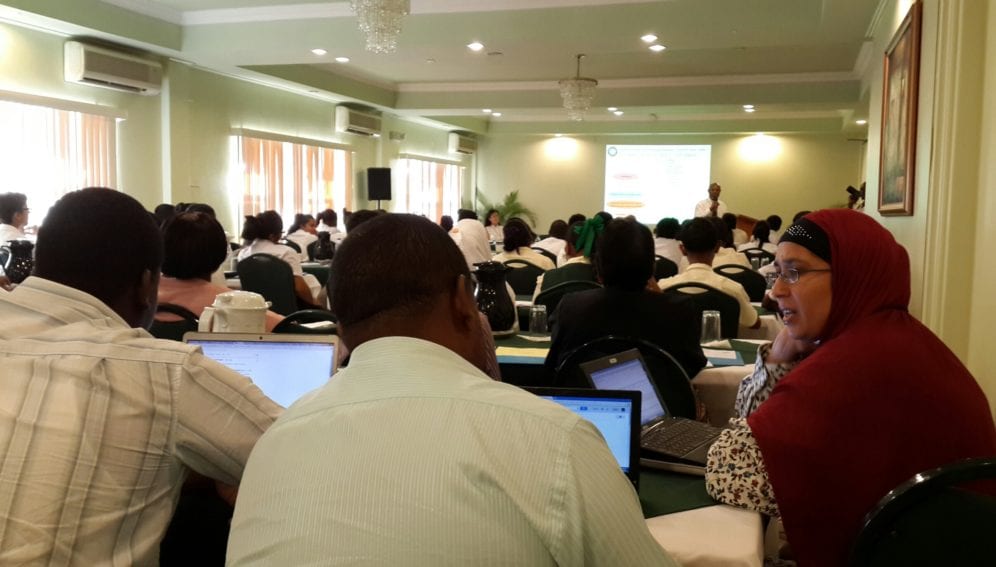By: Pablo Correa
Send to a friend
The details you provide on this page will not be used to send unsolicited email, and will not be sold to a 3rd party. See privacy policy.
[GEORGETOWN] Financial problems have not undermined the enthusiasm of the members of the Caribbean Science Foundation (CSF) who met this week (2-3 December) in Guyana for an annual workshop.
On the contrary, the meeting served to launch new ideas and rethink the young foundation’s funding model.
“We are a very fragile organisation,” Cardinal Warde, interim executive director of the CSF, told SciDev.Net, referring to its small membership, the limited size of its network, economic instability in the region and the fact that it is not yet very popular among the general public, students and governments.
Three years ago, when the foundation was set up as an independent non-profit non-governmental organization by the Caribbean Diaspora for Science, Technology and Innovation (CADSTI), the strategic plan was to collect US$13 million in three years to support science across the Caribbean.
“Caribbean governments do not yet see that investment in science and technology is the way to go.”
Cardinal Warde, CSF
Different reasons, including the economic crisis in the region, the difficulty of bringing together scientists in the diaspora and the unwillingness of governments and private companies to fund science made that goal impossible. As a result, the budget of the foundation barely reached US$1 million so far.
Warde, who is also a professor of electrical engineering at the Massachusetts Institute of Technology, United States, explained that only two of the 13 governments in the English-speaking Caribbean have contributed to the foundation: Barbados offered US$15,000 and Trinidad and Tobago US$35,000.
“Everything else comes from private companies and NGOs. Caribbean governments do not yet see that investment in science and technology is the way to go,” Warde said.
Jeanese Badenock, professor of chemistry at the University of West Indies in Barbados and one of the “work-bees” of the foundation, said: “It’s time to think of another model”.
“Originally,” she said, “Warde and the other founders believed that the money would come from scientists in the diaspora who are members of CADSTI. But it did not work as they thought.”
Although CADSTI already has seven branches worldwide, and each is trying to create its own funding model, it has not been easy for Caribbean scientists living in developed countries to form networks, stay active and channel funds to CSF activities in the region.
“The reality is that, if we want a change here, we must start the change by ourselves,” Badenock said.
In her opinion, it is not a good idea to bet on government support because each new government changes priorities.
Instead, she would like to see celebrities such as actress and singer Rihanna, born in Barbados, advocating for the use of science and technology to solve problems the Caribbean is facing in areas such as agricultural and food security, water scarcity and climate change adaptation, and to boost the economy with innovative ideas.
“If someone like Rihanna invites people to make a small donation, say a dollar, using text messages, to work in some area of science and technology important for our country, I’m sure people would respond,” said Badenock.
After the meeting this week, members of the CSF returned to their islands and small countries to continue trying to keep the organisation afloat and gradually make it stronger.
Link to CSF’s mission statement
Link to CSF’s strategic plan














